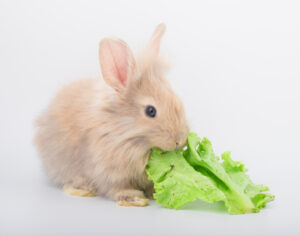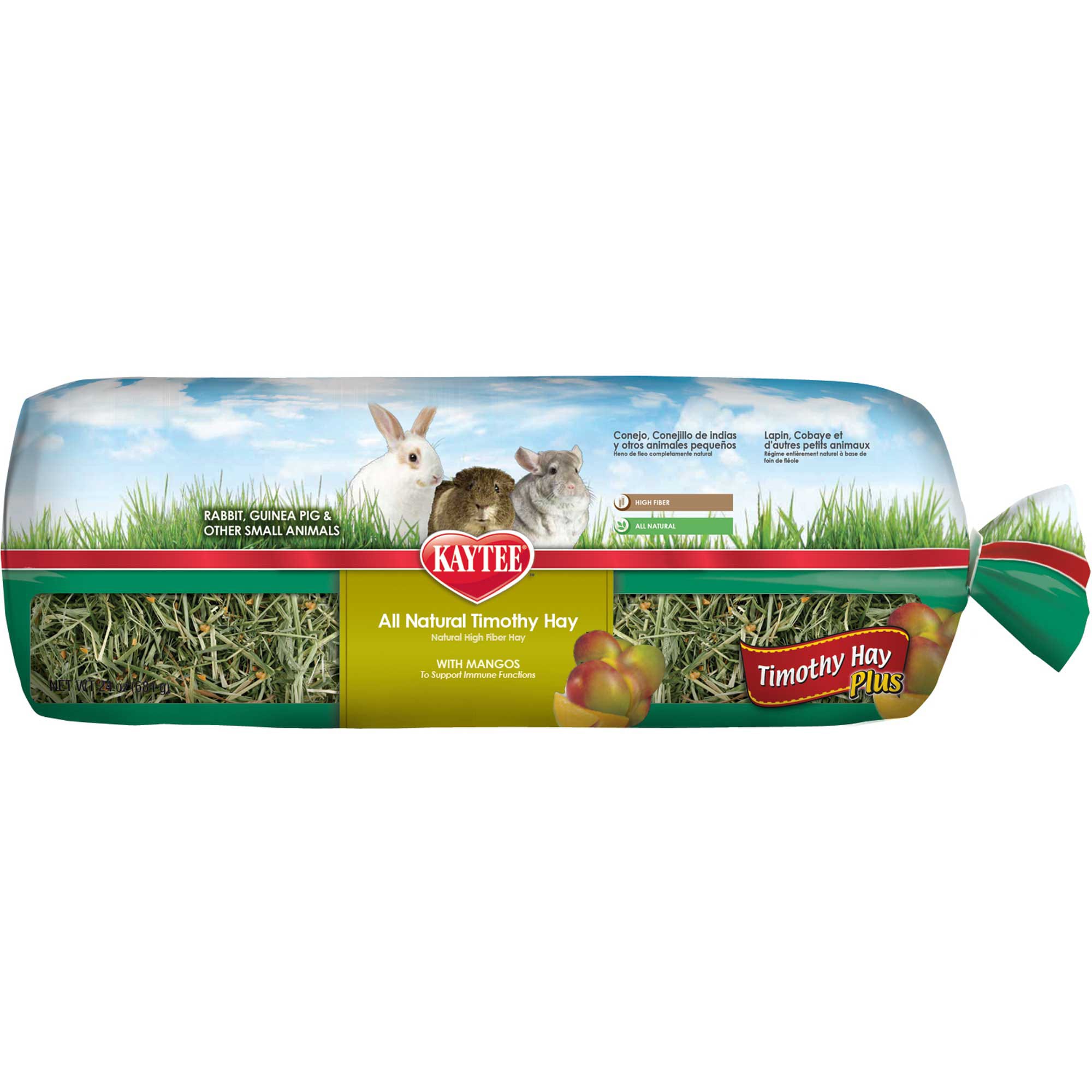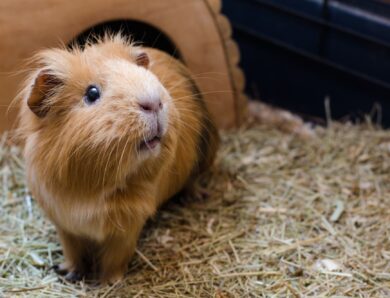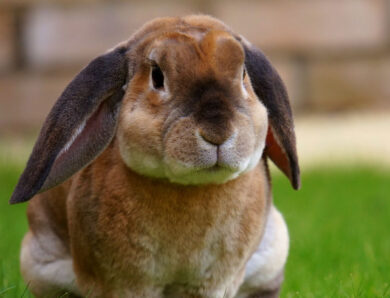
Iceberg Lettuce Could Kill Your Rabbit: 7 Surprising Foods You Shouldn’t Feed Your Bunny
The main ingredients in a rabbit’s daily diet are grass hays, fresh vegetables, and water. Based on this — and the way caring for rabbits is portrayed in movies and on TV, new rabbit owners might assume they can give their new bunny any vegetable. But such an assumption can have deadly consequences.
Here are several plant-based foods you should never feed your rabbit.
1. Rhubarb and Potatoes
Every part of these garden vegetables are poisonous to a rabbit. What makes both unsafe are the high levels of oxalates, a natural substance in many foods that for humans is relatively harmless. For rabbits, oxalates prevent the absorption of calcium and can lead to the development of kidney stones. If your rabbit has accidentally ingested any rhubarb or potato, watch for signs of appetite loss, mouth irritation, dehydration, diarrhea, vomiting, stomach bloat or lethargy. At the first sign of any of these call your vet.
2. Onions and Garlic
Delicious in a homemade tomato sauce, onion and garlic should never be fed to your pet rabbits. Both have a substance called thiosulphate, which causes a reduction in red blood cells leading to hemolytic anemia. Severe anemia can lead to death. Other foods in the same family — shallots, leeks, and chives — are equally as dangerous. If you think you’re bunny has gotten its teeth into one of these veggies, watch for signs of weakness, dizziness or a change in behavior.

3. Iceberg Lettuce
Though dark green, leafy lettuces are good for rabbits, thanks to their high fiber and nutrient-rich content, other lettuces, namely iceberg, should be avoided. Unless you want your bunnies to get high? Iceberg lettuce contains lactucarium, a natural opiate, that can be harmful in large quantities. Considering iceberg also has virtually no nutritional value, it’s not worth the risk.
Thinking about adding a rabbit to your family? Here are the best pet rabbit breeds for first-timers.
4. Chard, Spinach, Broccoli, Cauliflower, Brussels sprout, and Kale
While not nearly as dangerous as the previous foods mentioned, chard (also called Swiss chard or silverbeet), spinach, broccoli, cauliflower, Brussels sprout, and kale (all part of the crucifers family) can be harmful to rabbits if fed in large amounts.
Like rhubarb, all these veggies contain oxalates, but in smaller amounts. And, because each does have nutritional value, it is OK to treat your rabbits with small amounts every once in a while. However, none of these vegetables should be an everyday part of your rabbit’s diet, nor should more than one of them be fed at the same time.
Additionally, anything with oxalates can cause bloating or other stomach issues, so keep a close eye on your rabbits the first few times you feed one of these foods.
Have a new bunny you need to name? Check out what you should be thinking about when naming your pet.
5. Avocado
One of the most highly toxic fruits for rabbits is the much-loved avocado, thanks to small amounts of a fungicidal toxin called persin. While not enough to hurt humans, its plenty to make the fruit downright deadly to bunnies. Every part of the avocado plant has persin, including the leaves and branches so don’t let your rabbits near any part of it. If you know that your rabbit has had a nibble on the plant, call the vet immediately, as persin can cause respiratory problems and heart failure.
Keep in mind, fruits in general are far too sweet for rabbits to digest properly and will often cause stomach issues. While a tiny bit of fruit as a treat once in a blue moon is OK for most rabbits, fruits should not be a part of any rabbit’s daily diet.
Ever find your bunnies’ whiskers on the floor? Save them and have them turned into beautiful jewelry!
6. Hamster or Guinea Pig Food
It might seem obvious, considering hamsters and Guinea pigs are rodents, and rabbits are lagomorphs, but because their pellet food looks so similar some people assume you can swap one for the other. Additionally, many people who have rabbits also have some type of rodent, and sharing food is less expensive than buying separately.
But the nutritional needs of rodents and rabbits are different. Rabbits require high-fiber foods, but make their own Vitamin C. Hamsters and Guinea pigs don’t need high-fiber diets and don’t make their own Vitamin C. Therefore, the nutritional makeup of their foods isn’t the same. Rabbits forced to eat rodent food will be unhealthy, and most likely overweight.
7. Carrots
What?! Don’t believe everything you see on TV. Despite Bugs Bunny’s penchant for carrots, the orange veggies are, in fact, too sweet for rabbits to have on any regular basis. All that sugar can lead to tooth rot, something you never want your hopping buddy to suffer with. As a root vegetable, it’s also harder for bunnies to digest, which can lead to loose stool and upset tummies.
Generally speaking, your bunnies should be eating hay and green leafy veggies every day. Want to throw the carrot leaf? That’s OK a few times a week. Want to give an actual piece of carrot? Offer only a small slice, and no more than every other day.
Hay is an important part of your rabbit’s diet.

1 Comment
Comments are closed.






I was thinking to get a rabbit for my son. This is new (to me) and useful info, thanks.